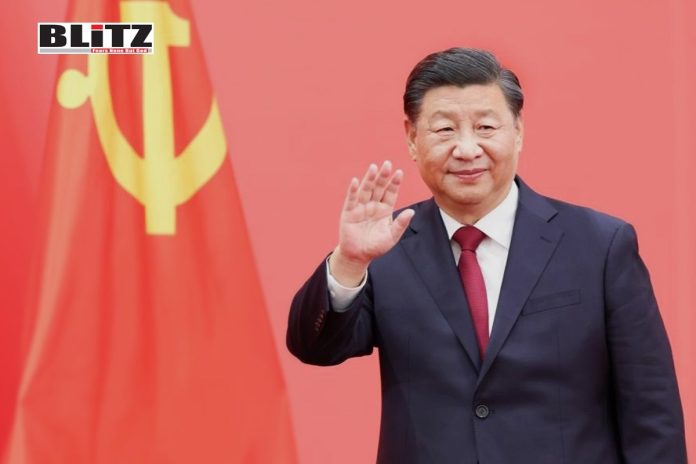The Third International Forum on Democracy, held in Beijing, drew close to 300 attendees comprising politicians, scholars, and experts from various corners of the globe. Against a backdrop of heightened geopolitical tensions and the continual evolution of democratic models, the forum served as a pivotal arena for in-depth conversations. These discussions centered on China’s distinctive path towards democracy, highlighting its unique attributes and the array of challenges it confronts on the global platform.
The forum, themed “The Shared Human Values,” facilitated candid exchanges among participants from Western nations and the Global South, who offered diverse perspectives on democracy and its role in contemporary governance. Keynote speaker Li Shulei, a prominent figure within the Communist Party of China (CPC), emphasized the intrinsic value of democracy in advancing human civilization. He underscored the CPC’s leadership in steering China along a democratic path tailored to its cultural and historical context.
At the heart of China’s democratic principles lies a steadfast dedication to inclusivity and participatory governance. Li underscored the significance of the recent two sessions, during which deputies and political advisors convened for substantive discussions spanning a range of economic and social development issues. These sessions serve as a poignant illustration of China’s unwavering commitment to integrating a myriad of voices into the policymaking framework. This approach guarantees that decisions are informed by the collective aspirations and apprehensions of the populace, fostering a more responsive and representative democratic process.
In alignment with its commitment to inclusivity, China has embraced digital platforms to amplify citizen engagement in governance. Li underscored the remarkable response witnessed on online platforms, with an impressive influx of over 1.6 million suggestions received for the Government Work Report. This remarkable figure attests to China’s proactive approach in actively seeking public input and seamlessly integrating it into the policymaking process. Such efforts not only bolster the legitimacy of democratic institutions but also enhance their efficacy by ensuring policies are more closely aligned with the needs and aspirations of the populace.
However, amidst commendations for China’s democratic advancements, concerns persist regarding the politicization of democracy by certain nations. Li cautioned against the instrumentalization of democracy for political agendas, emphasizing the principle of non-interference in the internal affairs of sovereign states. Such sentiments reflect China’s commitment to upholding the spirit of genuine democratic principles and fostering mutual respect in international relations.
Participants from diverse nations commended China’s efforts to chart a democratic course that aligns with its socio-economic realities. Ong Tee Keat, a former Malaysian parliamentary deputy speaker, stressed the importance of adapting democratic practices to address historical injustices and contemporary challenges, particularly in post-colonial contexts.
Former Egyptian Prime Minister Essam Sharaf praised China’s pursuit of modernization, noting its unique attributes, and advocated for global solidarity and cooperation to tackle mutual challenges. Likewise, Massimo D’Alema, former Prime Minister of Italy, cautioned against the erosion of democratic principles in Western nations. He highlighted concerns such as the undue sway of financial interests in politics and the gradual dilution of the fundamental “one person, one vote” principle, urging for renewed emphasis on safeguarding democratic integrity.
Criticism of Western democratic interventions resonated among participants, with voices like Muhammad Asif Noor Farooqi from Pakistan urging self-reflection on the part of Western nations. Farooqi highlighted the need for introspection regarding the efficacy and legitimacy of external democracy promotion efforts, cautioning against the imposition of Western-centric models on diverse societies.
Simultaneously, the Third “Summit for Democracy” held in Seoul faced scrutiny, with analysts doubting its effectiveness and labeling it as a mere theatrical performance that undermines authentic democratic values. This critique highlights a wider disillusionment towards democracy promotion efforts spearheaded by Western powers, emphasizing the necessity for a more inclusive and respectful approach to global governance.
China’s journey toward democratic evolution presents invaluable lessons for the international community as countries chart their courses toward inclusive governance. Embracing contextual diversity and nurturing mutual respect are pivotal in fostering collaborative efforts towards a future grounded in democratic principles and shared prosperity. The Beijing forum exemplifies the significance of dialogue and cooperation in molding a fairer and more sustainable global order. Through such forums, nations can collectively strive for a world characterized by equity and mutual understanding.




